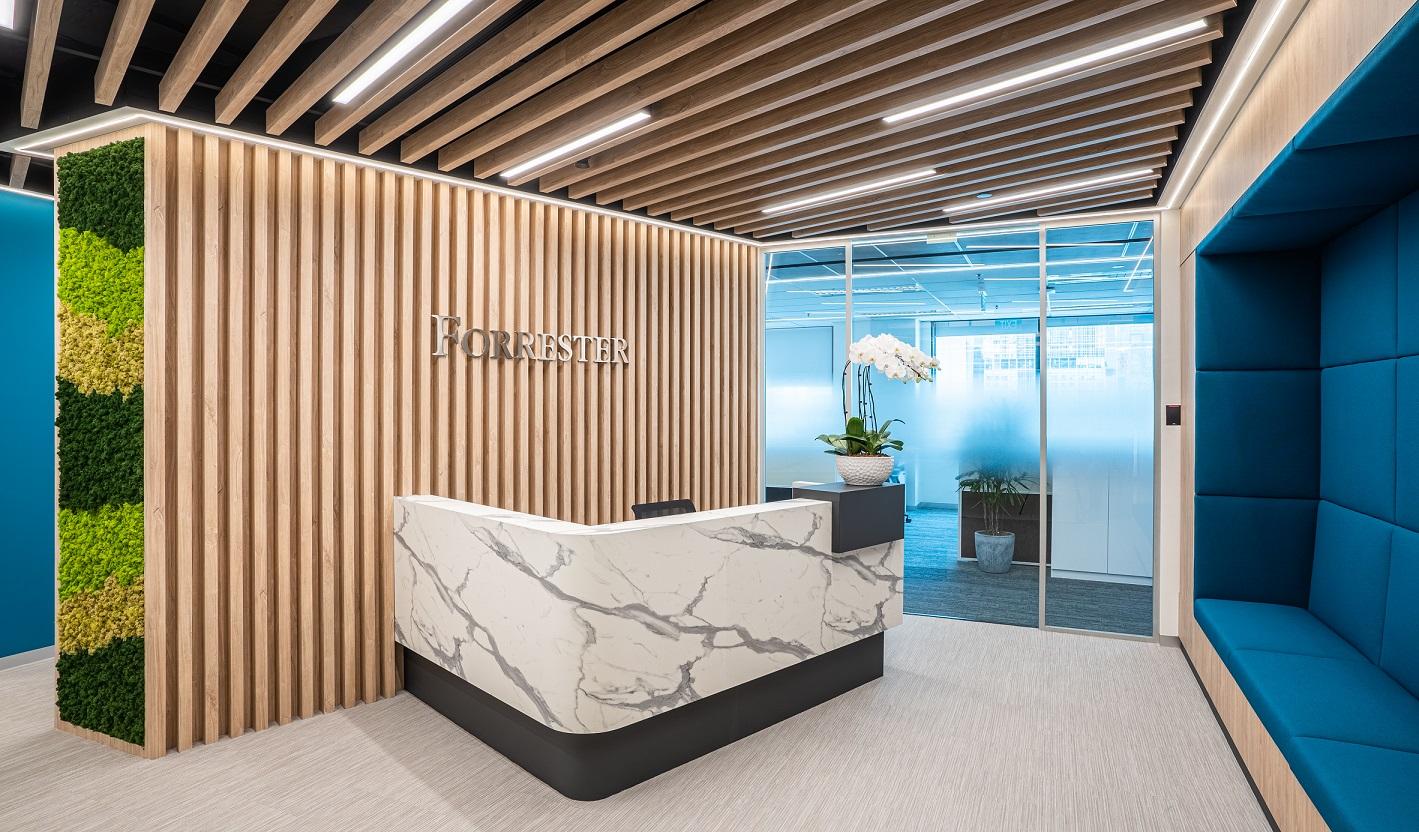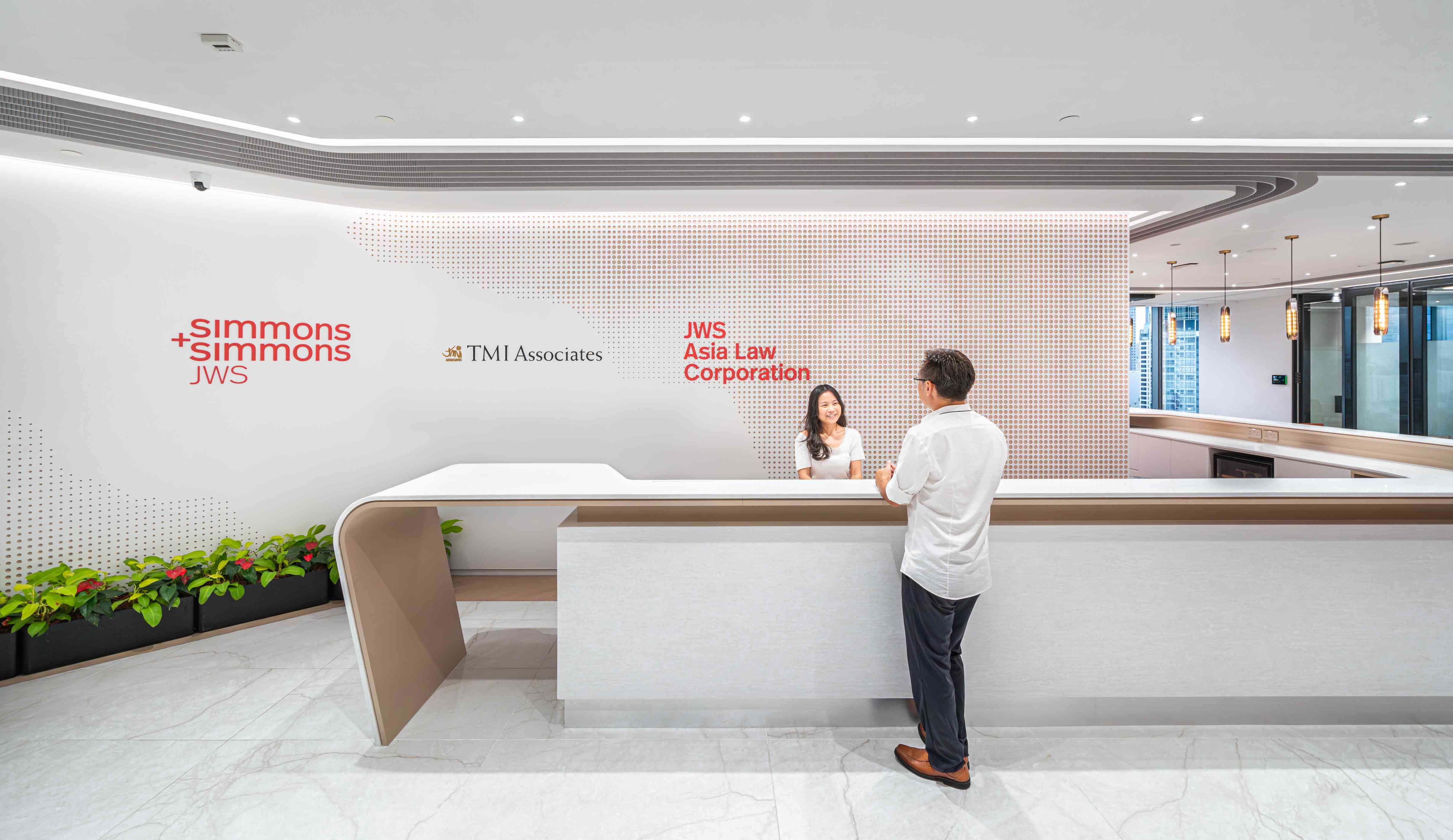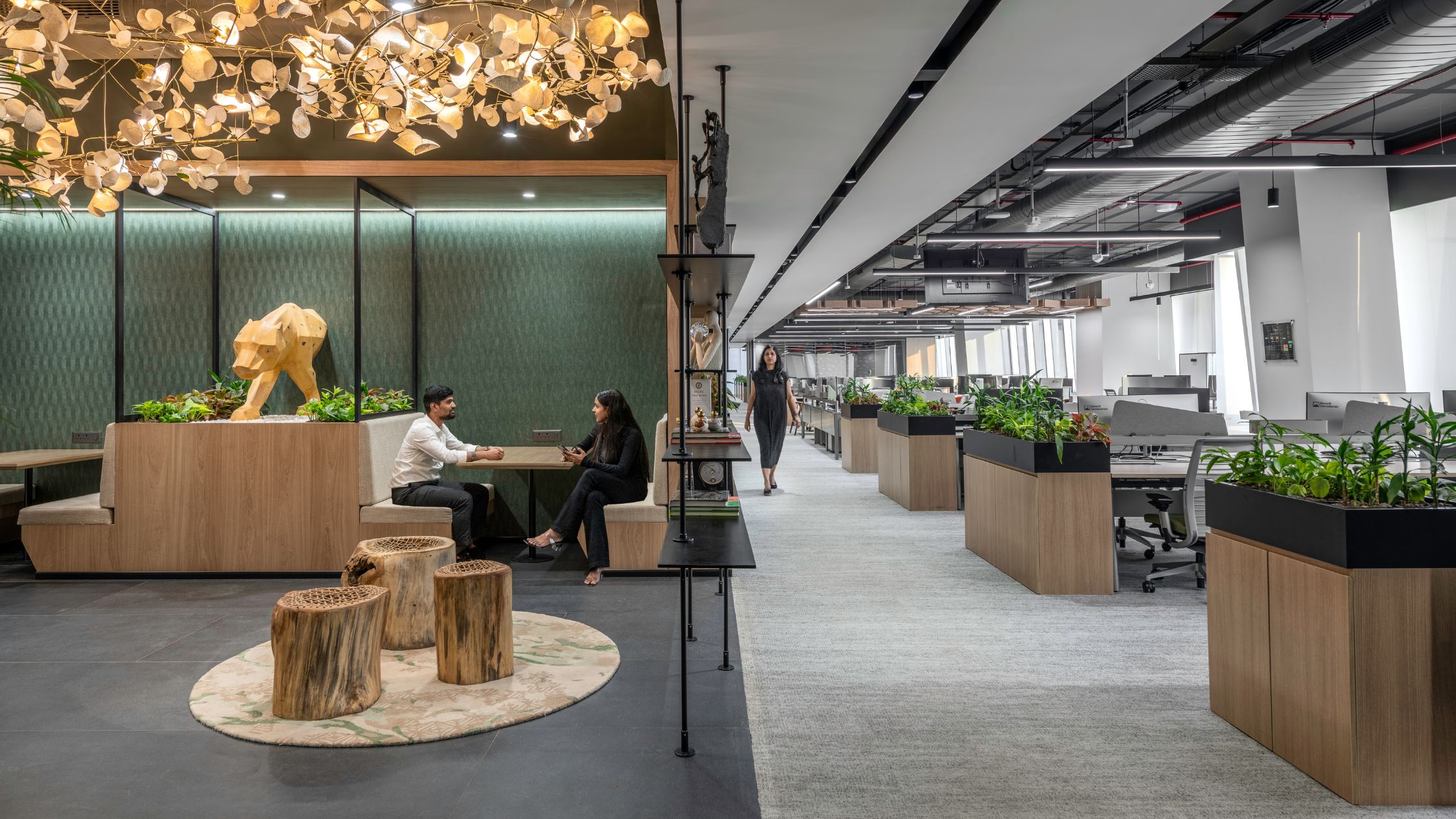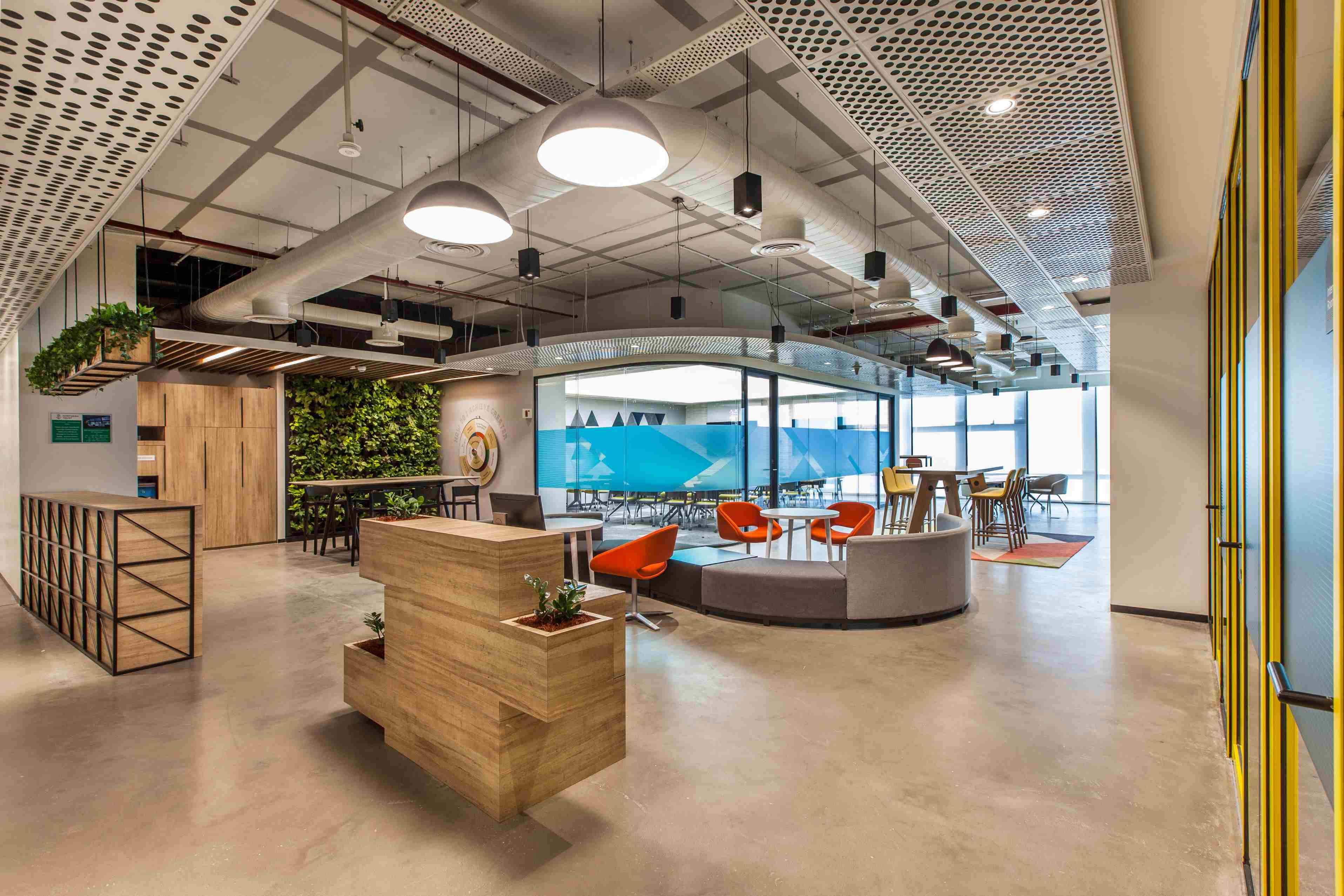Designing for a new decade: How Forrester Singapore updated its office design for the 2020s
The beginning of a year, the turn of a decade — and the end of work as we know it. Work today is not just a singular, traditional concept. The last few years have seen some major changes in technology, people’s professional outlook, and by extension, office design.
Forrester is a leading research and analytics firm that offers advisory and consultation services to clients around the world. As a company that prides itself in helping clients evolve with the times and stay ahead of digital disruption, Forrester is no stranger to change. Their last office in Singapore was designed 5 years back, but their operations have expanded to a great extent since then. As they enter a new decade, the company wanted to update and refresh their workplace design to be reflective of the ‘20s.
Here’s how we conceptualised their workplace strategy for the future.
1. Dynamic workstyles
As the decade progressed, the way people work changed, becoming flexible and much more collaborative than ever before. So it is in Forrester’s Singapore office, and the new workspace design reflects this.
Flexibility and dynamism are built right into the structure of the office. As a customer-focused firm, client collaboration is extremely important to the way Forrester functions. So, defying current conventions, the front-of-house has been designated as the ‘client-facing zone’. Boardrooms, meeting rooms and collaboration spaces (which are typically found tucked away towards the back) are all located right up front here in the Forrester Singapore office. They are the first things one sees when they walk in.
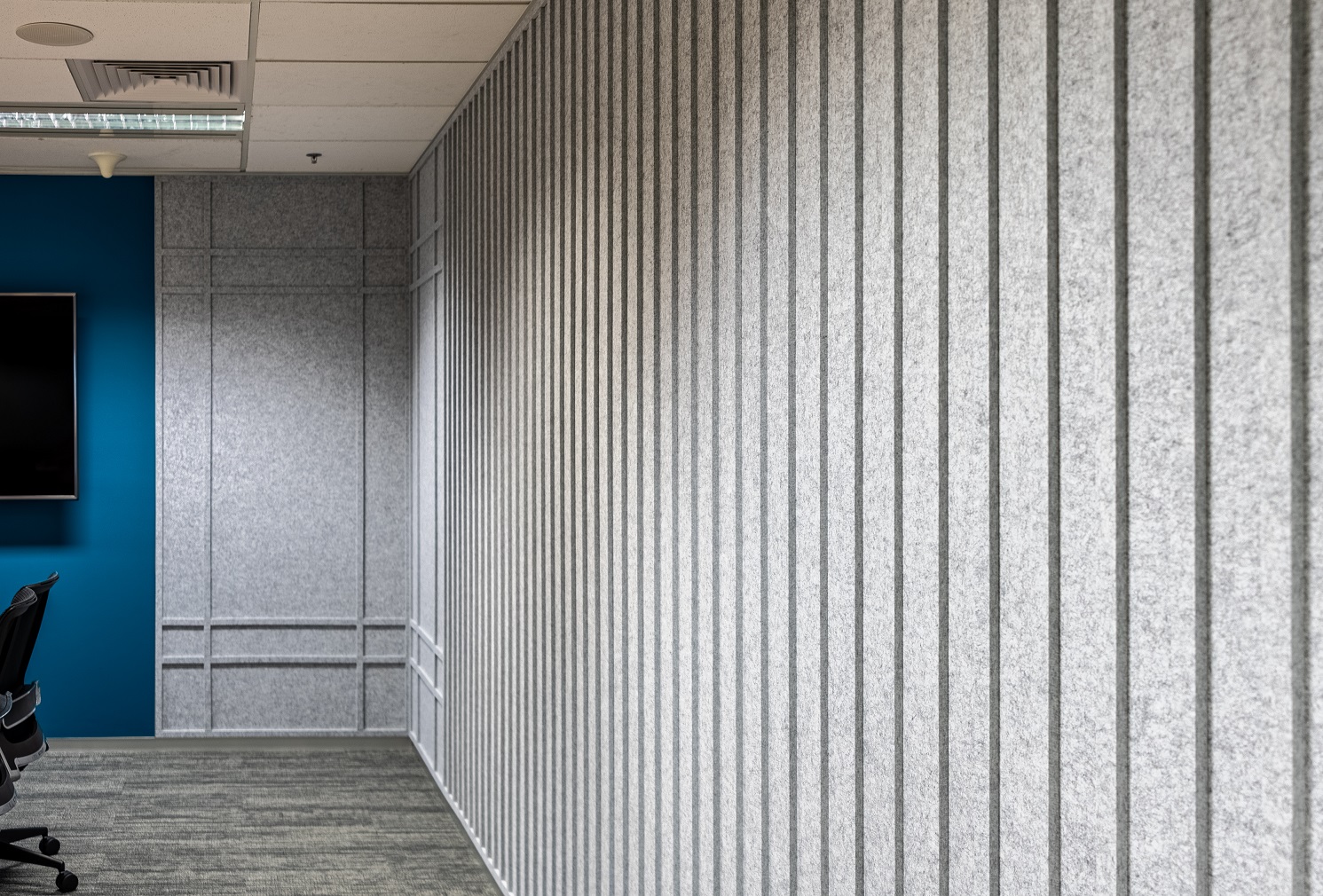
The back wall of the boardroom is fully operable, and it forms the only boundary between the front and the back of the office. When a larger space is required for town halls and events, this dynamic wall can be opened up to join the boardroom with the pantry area behind. The meeting rooms and hangout areas all have movable furniture like lightweight accent chairs, pouffes and coffee tables. This makes it easy to rearrange and reconfigure any space and make it suitable for teams and groups of various sizes. Apart from this, there are different kinds of work nooks all throughout the office. Located adjacent to the pantry, the long tables are great — both for brainstorming ideas and for sharing a meal with colleagues once the meetings are done.
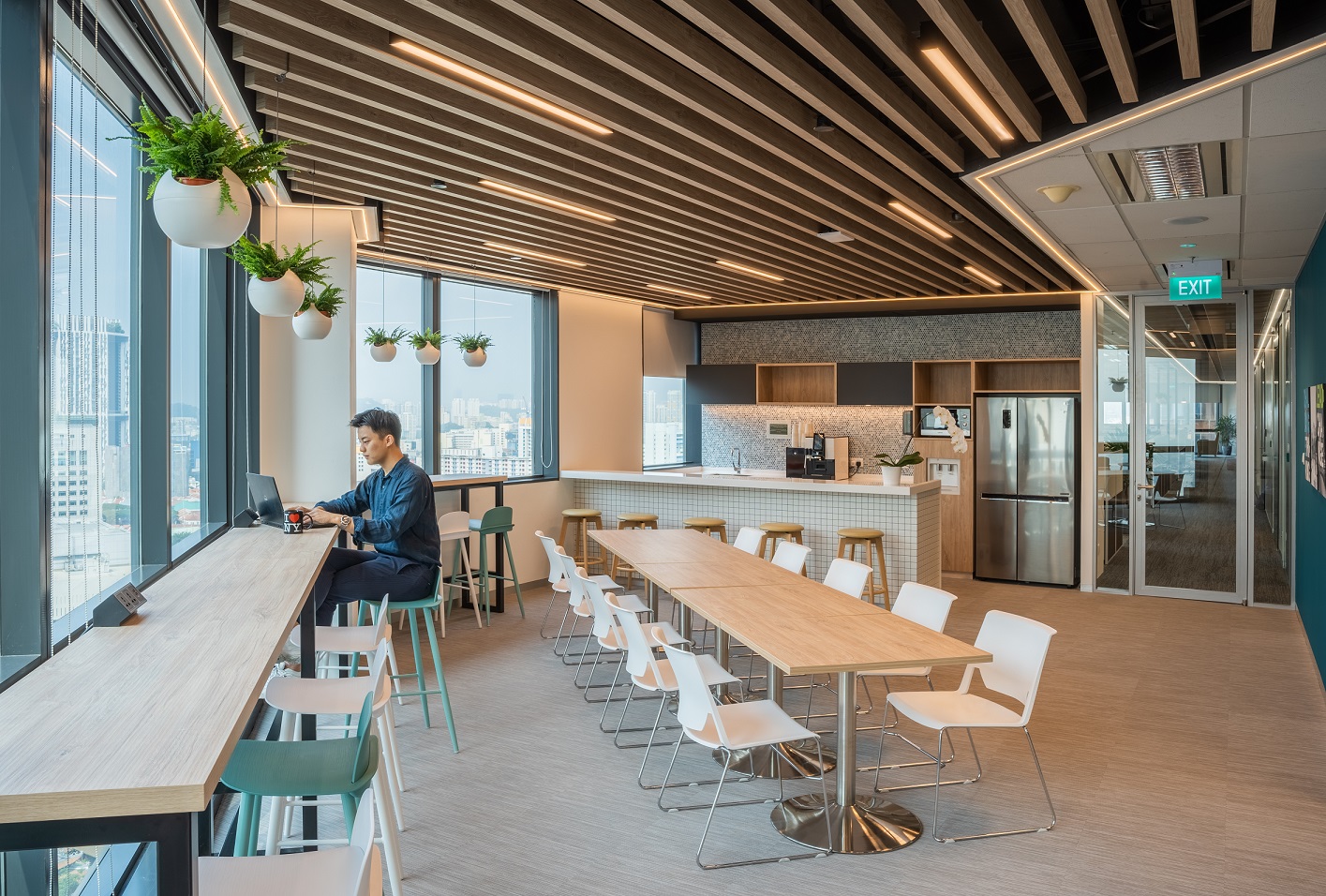
2. Conversations around mental health in the workplace
This is another welcome change that we have seen in workplaces over the last decade. As recently as the beginning of the 2010s, mental health issues were considered taboo subjects — with employees going out of their way to hide such issues from their employers. Now, mental health is a topic that is openly discussed and acknowledged. Employers today don’t just focus on workplace productivity — they seek to build a culture where employees feel mentally and emotionally supported.
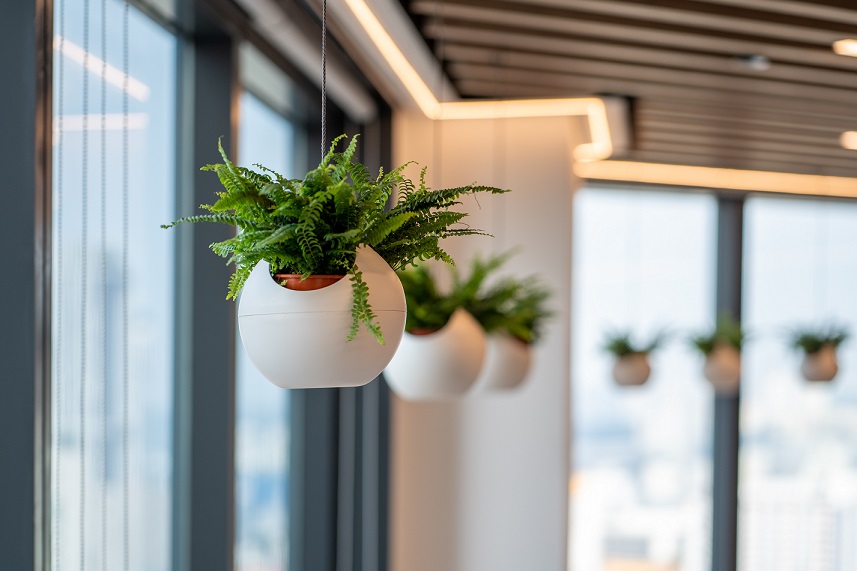
Forrester’s office in Singapore is designed keeping employees’ mental wellbeing in mind. Biophilic design elements have been shown to trigger positive emotional responses among people, so we incorporated them throughout the workspace. We chose an earthy colour palette for the office, with lots of greenery, cosy textures and nature-inspired hues. Wood has been used copiously on work surfaces, counters and furniture, to add warmth to the space.
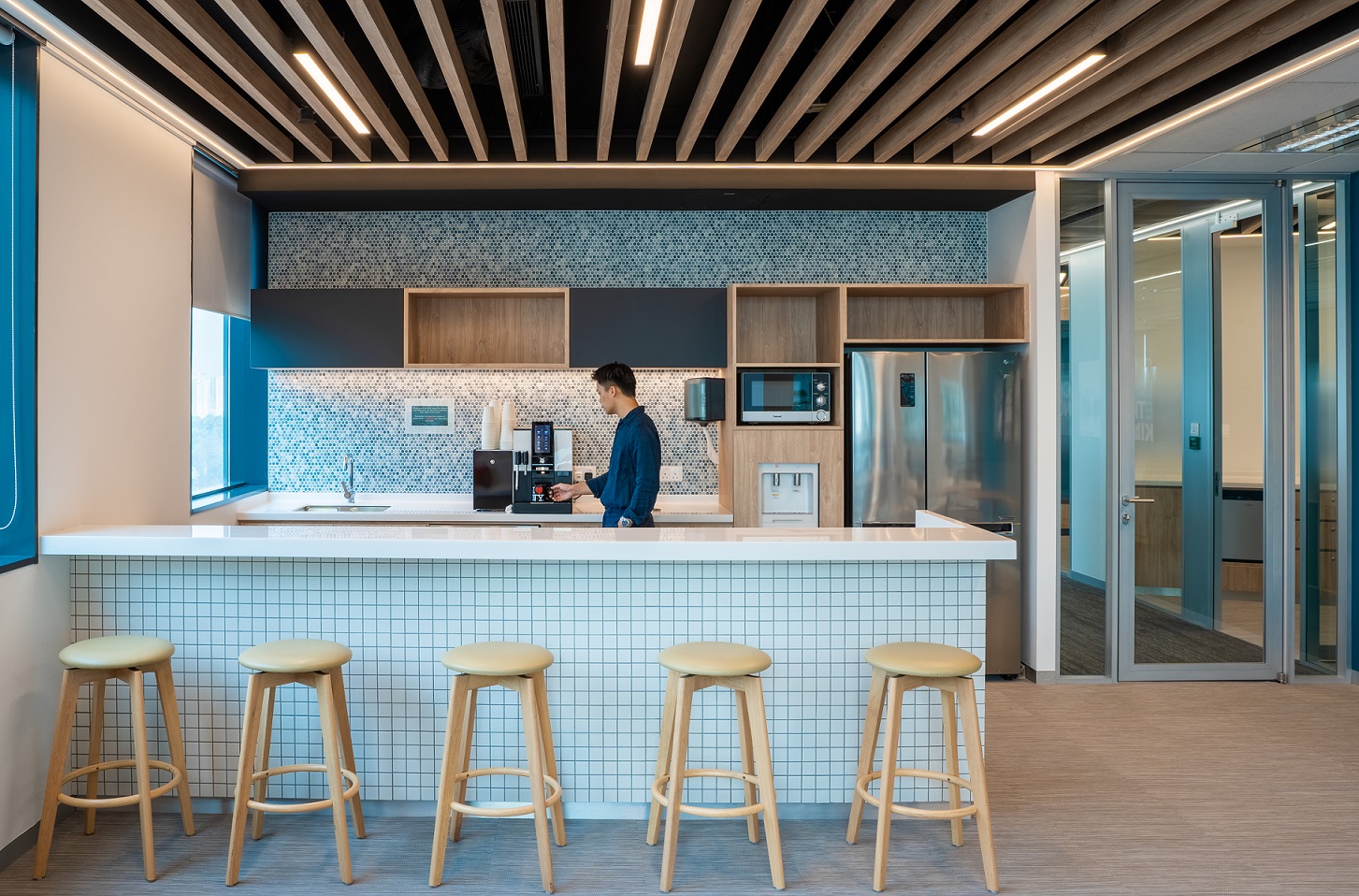
The pantry is well stocked with herbal teas, nuts and fresh milk, thereby enabling employees to make healthier choices every day. This pantry is combined with a well-equipped game room, where people can relax and recharge. Cushy beanbags and pouffes are dotted around this area, enabling colleagues to gather in clusters to chat and bond. The walls open up to reveal television screens for game days and movie nights. Moreover, the office provides childcare facilities and the use of a comfortable mothers’ room to ease the mental burden on new parents. All these design elements, when coupled with progressive policies, contribute to the growth and holistic wellbeing of everyone working in the office.
3. A stronger focus on sustainability
Employees today are no longer just looking out for their own personal growth and career fulfilment — they also want to focus on the greater good of the world around them. They want to support sustainable brands and align themselves with companies whose values match their own. Sustainability, thus, is no longer just a ‘CSR initiative’ for modern firms — it is woven right into the very fabric of these companies.
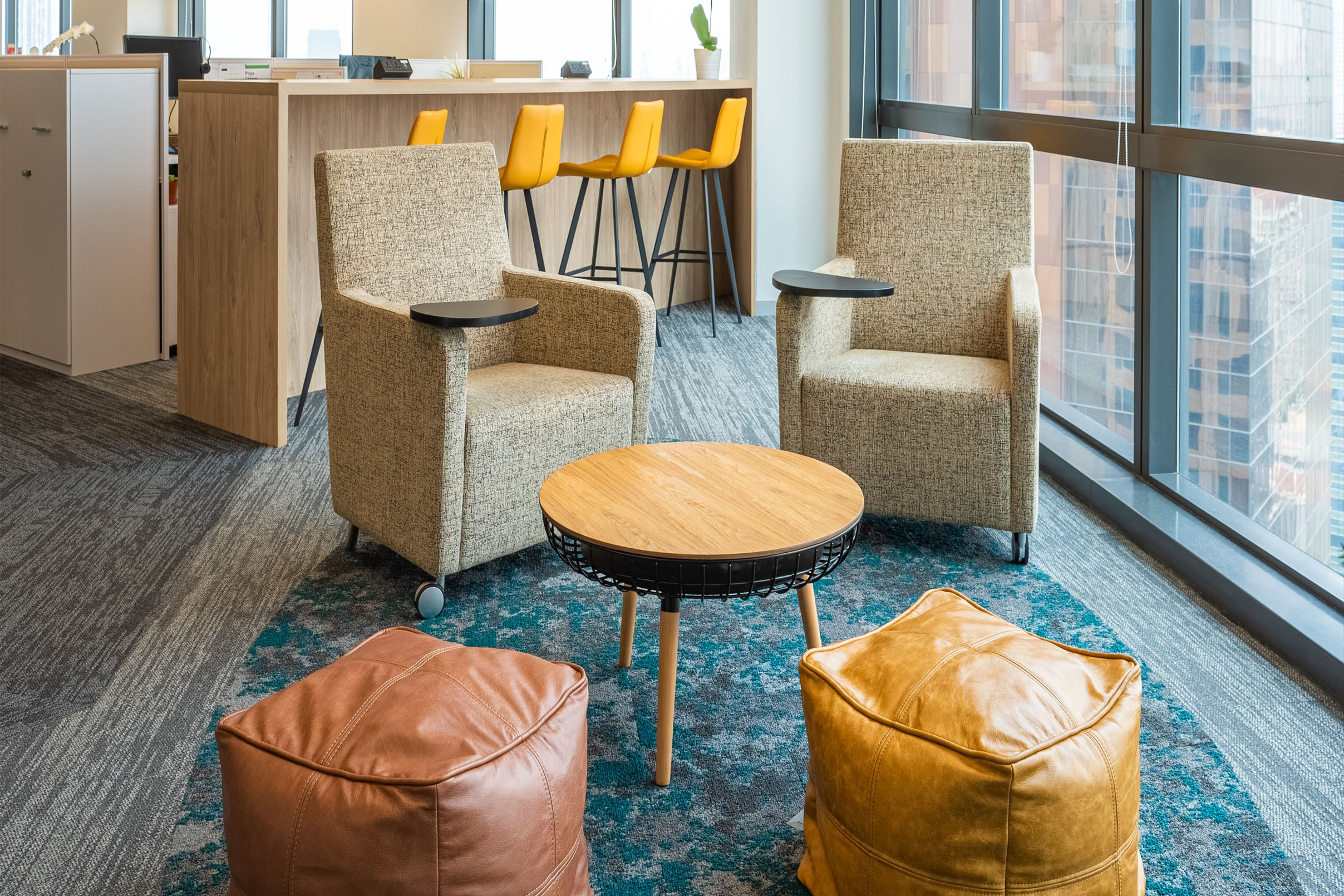
Sustainability is an important part of Forrester’s company values, and we kept this in mind while designing their Singapore office. A quick look around highlights the reduced dependence on electric lights. Wide windows let in adequate natural sunlight throughout the day, in both the work areas and the pantry. Sustainable LED lights have been used across the office, which further cuts down on energy usage.
The beautiful vertical moss garden in the reception area features mosses from Northern Europe and requires no extra water or lighting for its upkeep. But it does not just have an aesthetic purpose — it also works to purify the air indoors, thereby reducing dependence on electric air purifiers and humidifiers.
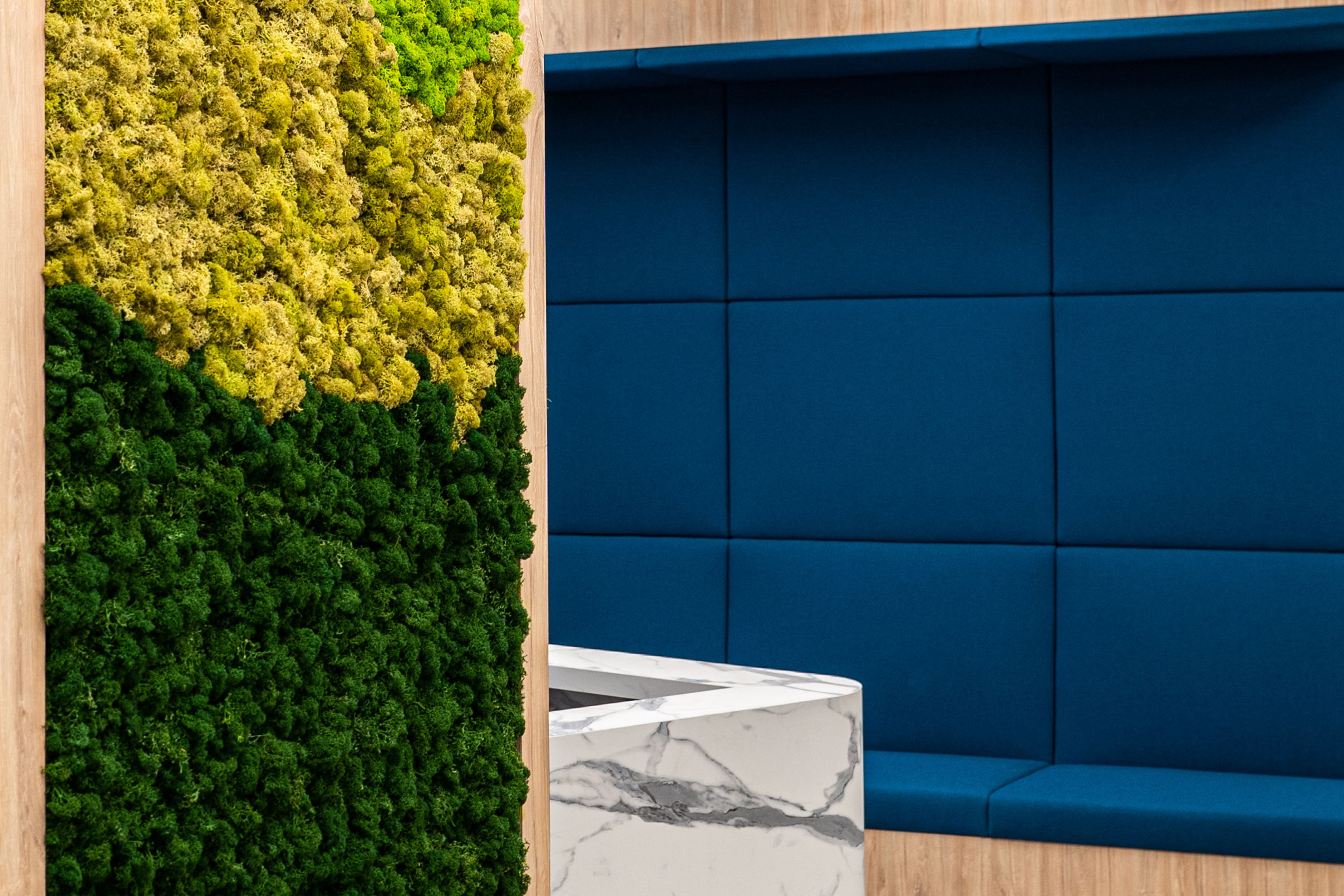
While sourcing products for the fittings and furnishings, we went for sustainable, environmentally sound options too. We chose non-toxic, low VOC paints to cut down on harmful emissions that pose serious health and safety concerns for occupants. Recycled materials have been used in the creation of the carpets and acoustic panels, as well as the Formica laminates utilised in the office. Clearly marked waste bins are placed at regular intervals, encouraging employees to segregate at source and be more mindful of the waste they generate.
Ready to embrace a new decade with an updated workplace strategy? Let’s talk about getting you there.

